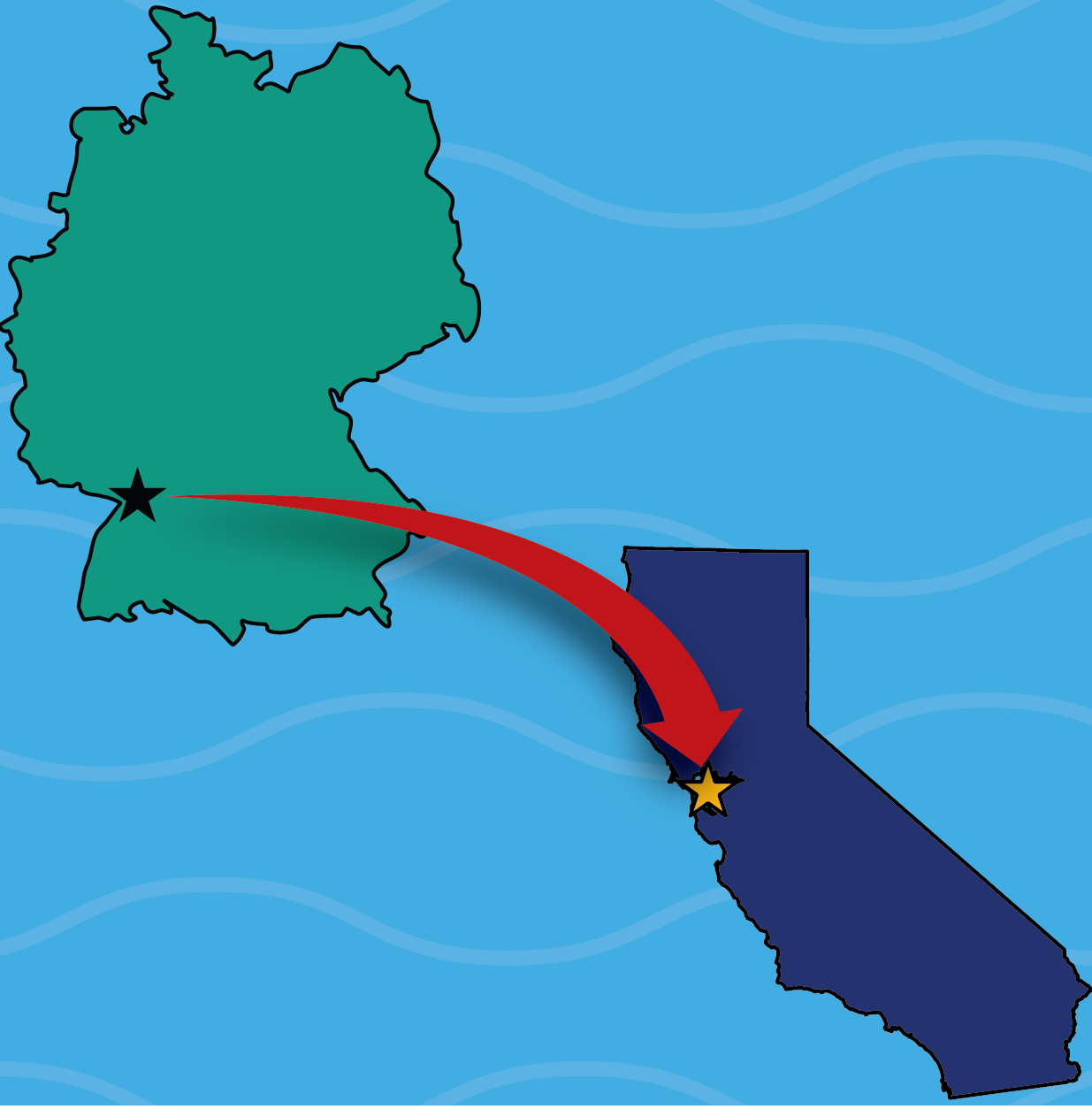
UC Berkeley is a birthplace for tech startups, but while its student body is famously diverse, the makeup of its startups is far from representative. On AngelList, a popular website that connects investors and startups with new talent, 40 percent of the 136 listed freelance entrepreneurs in fields ranging from consulting to programming in the Berkeley area are women. While this suggests that tech startups are welcomingly diverse, restricting the search to only information technology and software sectors reveals that only 16 percent of these freelancers are women. Lack of diversity in startups is a multifaceted problem with real-world consequences. By providing resources to support inclusive entrepreneurship, UC Berkeley is striving to make startups reflect the diversity of California.
Lack of diversity is bad for business
The Bay Area has long been the birthplace of new technologies, with one of the highest concentrations of startup businesses in the United States. Fueled by the demand for educated and innovative thinkers with novel business ideas, UC Berkeley is perfectly positioned to train entrepreneurs. In fact, UC Berkeley alumni have spawned many famous startups, including Google, SanDisk, MySpace, Autodesk, and VMware.
“With about 10,000 grad students and 2,000 postdocs, and research funding of about $674 million in 2016, I believe that [UC Berkeley is] able to produce more startups that can bring new technologies to the market,” says Naresh Sunkara, a visiting scholar and special advisor to the vice chancellor for research at UC Berkeley.
 African American, Latinx, Native American/Alaska Native, and Pacific Islander are represented on campus at far lower levels (left) than they are across the state of California (right), which is one of the most diverse states in the nation. Image credit: Benjamin Obadia.
African American, Latinx, Native American/Alaska Native, and Pacific Islander are represented on campus at far lower levels (left) than they are across the state of California (right), which is one of the most diverse states in the nation. Image credit: Benjamin Obadia.
Despite these successes, the lucrative startup environment in the Bay Area is not inclusive. Most entrepreneurs are white men; only 30 percent of people in the entire workforce in Silicon Valley tech firms are women, and only 6 percent are Latinx, despite the fact that that in the 2010 Bay Area Census, 23.5 percent of respondents reported their ethnicity as “Hispanic and Latino.” This lack of diversity is bad for business. Research reveals that companies with diverse leaders are more innovative, and that diversity can lead to socially beneficial and profitable outcomes, perhaps partially because ideas developed with a smaller variety of opinions are more likely to hit unanticipated roadblocks.
And worse, a lack of diversity can even be dangerous—for instance, designers sometimes forget to ensure their creations are designed for both men and women. When safety airbags for cars were first developed, crash test dummies were modelled based on the average male body, ignoring women’s typically smaller frames. As a result, women were 47 percent more likely to be seriously injured than males in similar accidents due to these airbag designs. Perhaps by providing the resources to promote diversity in startups, tragedies like this can be avoided in the future.
Diversity in STEM programs
Diversity in tech startups cannot be achieved without diversity in STEM programs. Nationwide, less than a third of university STEM degrees are earned by women, 14 percent are earned by Latinx students, and only 11 percent are earned by Black students. To counteract this trend, UC Berkeley recently launched the STEM Equity & Inclusion initiative with the aim of collecting data and evaluating all 118 STEM-supporting programs across campus. The initiative seeks to identify factors blocking participation, address community needs, and build new resources to improve diversity in STEM.
Several of these programs directly target the representation of women in startups. One approach is to hold events to promote awareness and engagement on campus, such as the upcoming event, Women in Tech: A Symposium on Innovation and Entrepreneurship, which will take place in November 2017. Another is to foster student groups that arrange meetups to connect current startup workers with students curious about how entrepreneurship works to help them navigate the many resources available to them. The initiative seeks to identify the most useful resources for budding startup founders and to ensure they are accessible and promoted to the student body at large.
“Now is a perfect time to consider how well our campus resources are supporting our entrepreneurs and to plan for expanded impact in the future,” says Professor Paul Alivisatos, UC Berkeley’s executive vice chancellor and provost.
Supporting and sustaining startups
UC Berkeley programs are working to make entrepreneurship more mainstream, better advertised, and better supported. While these efforts do not directly address diversity issues, generating strong support for startups at a diverse campus like UC Berkeley can help tackle lack of diversity in a more organic way.
“The [UC Berkeley] campus culture of innovation and support for entrepreneurship is evolving in the right direction, but very slowly,” says Sunkara, a visiting scholar. Sunkara is the founder of the Berkeley Postdoc Entrepreneur Program (BPEP), which partners doctoral students with early-stage startups to help solve scientific challenges. Promoting working at startups as a mainstream career choice could improve campus support for startups.
So where do aspiring entrepreneurs find support on campus? There are a variety of resources and networks on campus, including SkyDeck, The Fung Institute, Lester Center for Entrepreneurship, QB3 for Startups, The House Residency, Bear Founders, and the Foundry@CITRIS, among many more. The concept of these incubators and accelerators is simple: pair people passionate about a great idea with experienced commercial partners. SkyDeck connects student-led teams who have business ideas with a range of supporters with a variety of skills, including the business acumen of the Haas School of Business and the technical expertise of the College of Engineering. SkyDeck also directs students to UC Berkeley’s resources designed to boost their startups. By simultaneously tackling the scientific, organizational, and commercial needs of each team, SkyDeck has produced notable successes, with five students going on to be in Forbes’ “30 Under 30” list, which highlights the brightest young stars in various business sectors.
UC Berkeley also hosts several online services that help students sift through the school’s many entrepreneurship resources, including the Berkeley Start Up Network, which was founded by Scott Adams, Haas School of Business alumnus and creator of the Dilbert comic strip. The Start Up Network helps make introductions between entrepreneurs at UC Berkeley and those who can provide practical help in meeting fellow entrepreneurs, investors, and advisers. Another online aid, Startup@Berkeley (ST@B), provides students with a curated, open-access list of startup resources. ST@B members—many of whom have founded their own companies—maintain the ST@B website, which catalogues a free inventory of opportunities and organizations that students can join to strengthen their enterprise skills.
Bringing startups to the people
“Entrepreneurship is one of many ways in which our faculty, students, staff, and alumni work to achieve societal impact,” says Alivisatos. In fact, UC Berkeley is particularly good at encouraging businesses that address social issues, such as healthcare and education. Many of the on-campus accelerators, such as LAUNCH, which provide training and resources to speed up the development of a startup business, have produced startups focused on solving social problems.
Once LAUNCH success story is AVA, a team that worked to help open up the auditory world to people affected by complete or partial hearing loss. One in eight Americans have some form of hearing loss, American Sign Language (ASL) is used by up to two million Americans as their main language, and the Americans with Disabilities Act of 1990 guarantees ASL interpreters for services such as healthcare. But without costly interpretation services, people with partial or complete hearing loss are often less able to participate in conversations in everyday life.
AVA is an app designed to open up conversations by generating transcripts of speech in real time. The breakthrough idea at the core of AVA is color-coding conversations by speaker, so unlike human interpreters, AVA can capture many conversations going on at the same time. By using each speaker’s phone to translate their verbal conversation into a real-time written transcript, users can simply tap to invite conversation participants to the app and see all dialogue scroll on the screen. The three founders, Pieter Doevendans, Thibault Duchemin and Skinner Cheng, were honored as Forbes’ “30 Under 30” list, with Cheng being the first startup founder with hearing loss to make the list.
Something ventured—and gained
Tackling the problem of diversity in start-ups is proving a difficult challenge. But there have been successes. One positive role model is Cyclotron Road, a Berkeley-based tech incubation program that empowers science and tech entrepreneurs. The lack of women in STEM and the tech world makes it difficult to ensure the program is inclusive.
 Innovators of the Cyclotron Road Cohort Three at Berkeley Lab (2017-2019). From back to front and left to right: David Bierman, Joseph Geddes, Vince Romanin, Adam Vaughan, Sarah Richardson, David Walther, Lance Brockway, Jessica Morrison, Lauren Otto, and Supriya Jaiswal. Photo: cyclotronroad.org.
Innovators of the Cyclotron Road Cohort Three at Berkeley Lab (2017-2019). From back to front and left to right: David Bierman, Joseph Geddes, Vince Romanin, Adam Vaughan, Sarah Richardson, David Walther, Lance Brockway, Jessica Morrison, Lauren Otto, and Supriya Jaiswal. Photo: cyclotronroad.org.
“The first couple of cohorts at Cyclotron had hardly any women,” says Beth Zotter, who develops the Cyclotron Road program curriculum. “We looked at the data to see what was going on, why this wasn’t working. A big ‘aha!’ moment was realizing that everyone [in tech] wanted change. Part of the solution is men being change agents. There are so few women in science to begin with, just getting them to apply to an accelerator program takes everyone’s effort.”
Cyclotron Road has been finding ways to reduce barriers to women participating in tech startups. By focusing on creating a welcoming atmosphere, 40 percent of the most recent cohort are women. Their success in encouraging women’s participation in tech is partly achieved by connecting directly to potential entrepreneurs from underrepresented groups and expanding the pool of quality applicants through professional connections. “The biggest part is working hard to make women feel welcome,” explains Zotter. “The ideal would be where we don’t have to think about this anymore. It’s suggested that there’s a critical mass where the solution is a self-sustaining balance. For us, with both the project leads who come into the program and the people they hire, there’s a good balance.”
Although there is a long road ahead to improving diversity in startups, organizations such as Cyclotron Road and UC Berkeley’s many entrepreneurial collectives are helping address this problem. Despite the many resources, opportunities, and focused efforts, there is still plenty more room to improve the inclusivity of the tech world in the Bay Area. But success breeds success, and every incremental improvement is a step toward a bright, inclusive future for entrepreneurs.
Sonia Travaglini is a graduate student in mechanical engineering.
Feature image credit: Benjamin Obadia
This article is part of the Fall 2017 issue.





